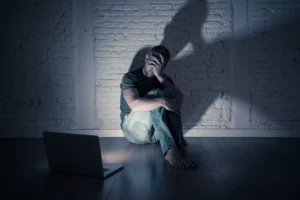Part of the Seniors and Gambling Series
Series About:
All aboard! This bus is bound for Las Vegas. Or grab a seat on the one heading for Reno or Atlantic City. Thousands of seniors are ready to go. They’ll have fun, good food at a fair price, lots of company and maybe they’ll bring home a few dollars.
For most retired folks, such a trip is just one of many excursions they’ll take now that the kids are grown and they have more time for leisure. But for hundreds more, an escape to Vegas or other ‘sin’ city is just that — an escape from the challenges that face so many of us as we age — and an escape to something more exciting than our small world.
Loneliness
A busload of friendly people, from the driver to the tour guide, helps chase the blues. There’s conversation, as well as free snacks, comfortable reclining seats, air-conditioning and interesting scenery. Travelers can also leave the driving and luggage to someone else. For at least a couple of days they’re not alone. They’re part of something larger than themselves. And they’ll be safe from harm as there are guards in and around each casino keeping track of customers 24 hours a day.
Depression
Gambling takes people away from life’s problems with money, family, friendships, and health. Even the physically challenged man or woman can gamble. There is plenty of room for a wheelchair in front of a slot machine or a crap table. And you can sit all day or evening and play bingo or keno. Most of these people are not hard-core addicts to begin with. They are nurturing and caring by nature — just the opposite of an action gambler who takes risks with money for the thrill of it or because he or she likes living on the edge.
Individuals who use gambling to escape their pain have likely suppressed anger and disappointment and various other traumas throughout their life to the point where they cannot keep the lid on any longer. They may feel hopeless and helpless. A friend or family member may suggest they take up a hobby or go on a trip to feel better. When they discover gambling, they notice a feeling of relief or escape from pain — at least temporarily. And so they continue, afraid to give it up for fear of going back to their misery.
Sadness and Grief
People of any age face sad times throughout life, but sadness is particularly acute for many older men and women as they face their own immortality, the death of a spouse or sibling and declining health in themselves and in those they love. After a full and vibrant life they are suddenly immobilized by the reality of a major loss. Some retreat to their favorite chair in front of the television and zone out. Others stay busy so they won’t have to think. And still more escape through food, prescription drugs, alcohol — or gambling.
Like thousands of others who took up gambling after the loss of a loved one, Gina is in Gamblers Anonymous trying to live one day at a time. “It’s hard,” she said. “I actually miss the good times-or what seemed like good times.” By the time she quit gambling she owed two casinos $105,000, and had drained her savings and business accounts of nearly $200,000. The only thing she had left was her condo¬minium. “There’s no going back,” she added. “I know that. I also know that if I had continued on, I’d be on the street today-a bag lady.”
Fear
As people age, a host of fears crop up. Fear of death. Fear of terminal illness. Fear of inadequate income to cover late life expenses. Fear of losing one’s home. Fear of dementia. Fear of dependence on family members. One could drown in a sea of fear if he or she gives in to it. There is always something to be afraid of. Reading the daily newspaper or listening to the latest reports on television do nothing to take them away.
So what is an aging person to do? For many the answer is simple. Hop on a bus or plane and head to the nearest casino. The moment they walk through the front door, they are transported into another world — one totally unlike the one they left behind. It’s a world of glamour and glitz, bright lights, friendly drink and food servers, and the ka-ching of coins dropping into slot machines flashing with the promise of a fortune ready to break loose. At least for a time troubles and worries disappear — and if in the process they lose a little money, or even a lot, so be it. Escape is a powerful drug, especially for individuals who are basically decent people who are simply trying to get through life the best way they know how.
From Exhilaration to Desperation
Their first experience may be nothing more than a social afternoon or evening with family or friends. They gamble for recreation, much like buying a raffle ticket at a school fund-raising event or buying a lottery ticket at a local gas station. The thought of a possible win takes their mind off their concerns and gives them something to look forward to. Soon the stakes are higher. They return to a card room or a casino and put a little more money on the line.
Winning is not so much about the cash as it is about how gambling makes them feel — empowered, grown-up, even a little bit ‘bad.’ They’ve overstepped their own conventional boundaries and it’s a heady feeling. Then comes the chasing stage—where they try to cover their losses, which leads to more gambling and certain desperation where the losses far overshadow any gains, and finally to hopelessness — where they discover there is no way out. No amount of gambling will recover the loss that matters most — self-worth, integrity, honesty. At that point some people take their own lives. Others, with the help of those who love them, surrender to recovering from their self-destructive behavior.
According to the Arizona Council on Compulsive Gambling, “The gambling addicts must be offered the hope of an alternative way of dealing with the underlying factors that led them to want the escape-at-all-cost anesthetizing quality of slot machines, video poker, keno, bingo or whatever type of gambling they became addicted to.”http://www.azccg.org/a_types/escape.htm Not an easy task. But one that can be accomplished.
A twelve-step program, such as Gamblers Anonymous or Overcomers Outreach can, in time, lead to a more satisfying way to cope with the past and live in the present. Private and group counseling and/or outpatient or inpatient rehabilitation such as that offered by KeyStone Treatment Center can also be very beneficial for breaking the cycle and coming to terms with the often excruciating pain underlying the addiction.
Those who participate in such programs also discover the value of sharing their experience, strength, and hope with others, who in turn share theirs with the people who come after them. As individuals help one another, they help themselves, and little by little they exchange pain and grief and loneliness and loss for peace and joy and love and the assurance of God’s grace in every area of their lives.















